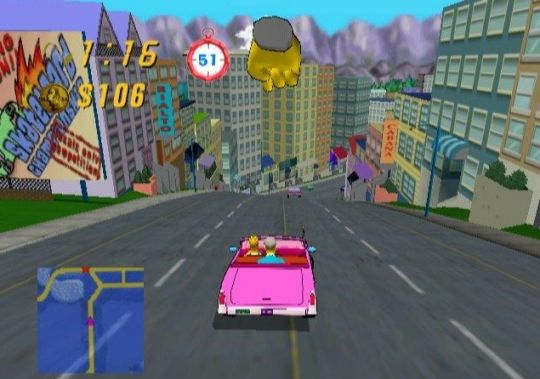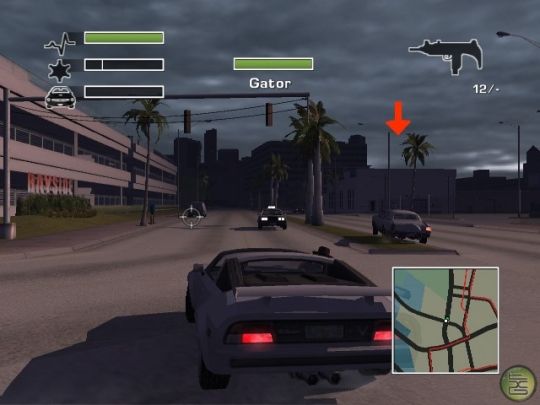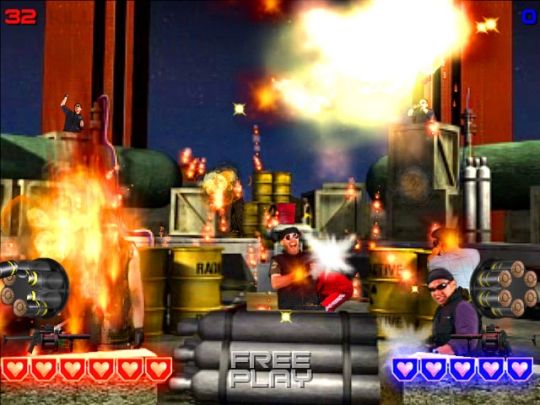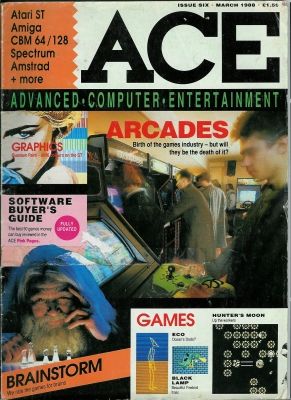|
HOLD THE FIRING SQUAD
Are games-mag writers as clueless as we think?
For want of anything less depressing
to do, your reporter found himself leafing through a few videogames
magazines yesterday. While this website often bemoans the lack of
perception or insight in gaming journalism, there were some
interesting comments in some of them, of relevance to some recent
WoS pieces, so to save you time, I've helpfully snipped them
out and noted them below. There'll be an interesting conclusion at
the end, natch.
----------------------------------------
ON DUMBING DOWN, REALISM'S VICTORY
OVER ABSTRACTION
"Abstract games have signally failed to gain popular support. Fine
coin-ops like Tempest and Qix, graphically impressive for their time
and addictive enough to achieve cult followings, had trouble paying
their way just because they were unconventional: it wasn't obvious
how to play them, or whether they would actually be fun once you'd
figured them out.
That's not the
end of the communication problem. If a game's got to convince
onlookers both that they can play the game straight away and that
they'll enjoy playing it, innovation's clearly a risky
business for designers. The easiest way to make a game that clears
these hurdles is to use an existing game format, improving on
graphics and minor gameplay features but keeping the overall idea
conventional enough to be (more or less) instantly recognisable."
ON PLAGIARISM
"If prices for licences continue to be pitched way above the
majority of company's heads, we could well see a return to wholesale
cloning - with just enough differences programmed in to make an
accusation of copyright infringement difficult to stick. Indeed,
it's already happening - there are any number of games on the market
today which bear a striking resemblance to well-known others."

"The courtroom's that way." Simpsons Road Rage
- or is it Crazy Taxi? (No, it isn't.)
ON PIRACY
"Things are hotting up in the war against pirates - the first prison
sentence for the crime has just been passed. The pirate sent to the
brig is one Gerhard Wilhelm Martens, a German living in Torquay.
Martens got 12 months after pleading guilty to charges of forgery,
copyright infringement and illegally importing software into the
UK."
ON RELEASING ("A CERTAIN
POOR-QUALITY GAME" - Ed)
"The publisher is obviously cagey about passing comment on a game
that, reading between the lines, they are unhappy with. A spokesman
for the company said 'We could have put more money into the
project, but then we couldn't have recouped our costs. If you spend
ten times as much money on a game, you don't sell ten times as
many.' If this is the case, then overheads need to come down.
Perhaps the message is that the market just isn't big enough to
support the degree of hype, overhead licence fees and programming
costs that the larger companies are committed to.
Speaking for
the programmers, a representative was refreshingly honest about the
game. 'We didn't necessarily want to do the product,' he
said, 'we were told to aim for the younger market... We're not
100% happy with it, but for the kids we think it's good.' It's
debateable whether this product should ever have been on sale in the
first place, but the best thing to do now would be to bin the entire
stock and start work on something better."

Driv£r? Driv3/10er? Driv3l? Take your pick of
comedy names for 2004's gaming atrocity.
ON THE FUTURE OF ARCADES, AND ON
VIOLENCE
"Things may change if the signs and portents seen at the arcade
industry's annual get-together at Olympia come to pass. It looks as
though the coin-op industry has run out of new ideas and has come to
sticking-point in the actual graphics-handling technology. In a bid
to woo players away from their computers and back to the arcades,
the Japanese and American coin-op designers have been concentrating
on the areas where the home cannot compete - the actual playing
environment. Another trend for the coming year is to produce
much-enhanced sequels to old faithfuls (I told you they were running
out of ideas).
One Operation
Wolf-style game is in incredibly noisy simulation in which you will
soon find the realism of the action urging you into a homicidal
frenzy. It certainly made me get carried away; my policy of aiming
careful shots and avoiding shooting civilians soon gave way to a
murderous bloodlust in which I quite happily blew the heads off
flak-jacketed soldiers. If anything, the game takes realism a little
too far and raises questions as to whether these games ought not to
be subject to some form of monitoring."

Target Terror -
Eugene Jarvis' controversial post-9/11 terrorism-themed new game.
ON EMOTIONAL AND ETHICAL MATURITY IN
GAMES
"In the sickening world of many of today's games, the only virtues
or qualities worth having are rippling muscles, macho aggression and
a bigger weapon than anyone else, and this portrayal of maleness is
degrading to men. All problems and conflicts are to be resolved by
violence and killing, and this is always justifiable because, you
see, we're the good guys and they are the evil ones. Seriously,
software companies, a bit more restraint please?"
ON GAMES MAGS/NOSTALGIA/ACCREDITATION (from a
letters page)
"I feel I must comment on the state of magazines - including yours -
on today's market. Firstly, let me say that I am not a newcomer to
the gaming world, and I have been buying (and reading!) games
magazines for about five years. Recently, I went through a few of my
old magazines from that time, and something struck me about the
style of the news, reviews and articles contained in the issues from
this era. The first thing I noticed was how much more interesting
they were compared to today's equivalents, but there was one thing
that stood out more than any other, and that was news and articles
concerning programmers. Today in most magazine news sections all
that seems to be topical is what companies are doing. The
same thing happens in reviews; 'X Company has surpassed itself with
the release of Y Product', and no mention of the people who wrote
the thing!"

A years-old videogames magazine, yesterday.
ON RELEASING
COIN-OP
CONVERSIONS AT FULL PRICE
"A good home game has to meet a different set of requirements to a
coin-op. It'll be judged not only on how addictive it is, but also
by how long the addiction lasts. If a coin-op holds your interest
for a solid day's play before you tire of it, the game designers
have done pretty well. If a home game comes apart that easily, on
the other hand, it's in for a rough time from reviewers and the
sales will probably suffer accordingly. Very few pure arcade titles
can manage the lasting interest to justify being released at full
price; it takes enormous skill on the part of designers and
programmers to hold an experienced player's attention that way."
ON "CONSOLIDATION" AND THE
FUTURE OF THE INDUSTRY
"The future? Will the games industry survive? Will the rich get
richer and the poor get poorer? Probably. The big boys with the big
money for the big licences will continue to coin it from coin-ops
and films. And the smaller, independent houses? Mergers and
marketing deals seem to be the order of the day. Rachel Davies
doesn't think that many houses will actually go bust this year;
'Software houses are more professional than they used to be.'
But she does believe there will be 'mergers, a polarisation
around the big houses, with the small ones becoming development
teams still publishing under separate labels.' Let's hope that
it doesn't mean they'll just be turning out clones to order.
We could see some of those independent software houses signed up by
EA as associate labels.
'We're still looking for associates,' says EA's Mark Lewis,
'and it's more than likely that we'll sign some more software
houses in the new fiscal year.'"
----------------------------------------
Enough clues
yet? World Of Stuart's readers are intelligent people, and this
correspondent is entirely sure that you'd already figured out this
feature's twist before now, but if not then that last one should
have finally given it away. Referring to developers and publishers
as "software houses"? Big money in coin-op licences? Mark Lewis
still with EA?
Every quote on
this page, of course - except with the occasional word or title
removed to avoid giving the game away - actually comes from the
issue of ACE magazine which is pictured above, the coverdate of said
issue being March 1988. Yep, that's just a little fraction
over 16 years ago, viewers. What a long way we've come since
then, eh? Thank heavens for the ever-growing maturity and
sophistication of the world of videogaming!
|

